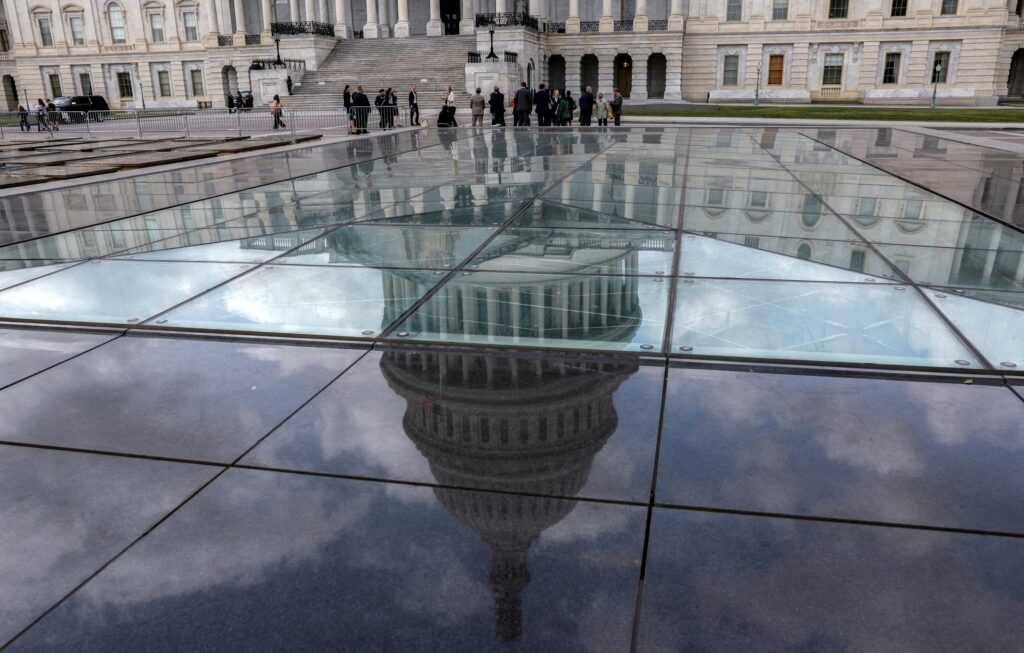Navigating the Fiscal Crossroads: Key Issues in the U.S. Government Funding Debate
Introduction
As the clock ticks towards a critical midnight deadline on Saturday, the U.S. government finds itself at a fiscal crossroads, teetering on the brink of a shutdown. The Capitol Hill battleground is set, with the Republican-controlled House of Representatives and the Democratic-controlled Senate entrenched in a high-stakes clash over the priorities that will shape the upcoming fiscal year, beginning October 1.
Spending Dilemma: Striking the Fiscal Balance
Setting the Stage
In May, House Speaker Kevin McCarthy and President Joe Biden reached a consensus, establishing an agency spending cap of $1.59 trillion for the new fiscal year. This agreement aimed to stave off potential economic turmoil by suspending the $31.4 trillion borrowing limit and averting the looming threat of a debt default.
“U.S. Government Shutdown Looms as House Republicans Reject Senate Funding Bill”
Republican Push for Deeper Cuts
However, the House Republicans are pushing for more significant spending reductions, advocating for a $120 billion cut, equivalent to 7.6% of the current spending level. The rationale behind this push lies in their commitment to shrink the federal government and address the escalating annual budget deficits in the post-COVID-19 era.
Biden’s Stand
President Biden, on the other hand, staunchly advocates adhering to the original agreement, asserting that any deviation from it would jeopardize the delicate fiscal balance. The White House has even gone so far as to threaten a presidential veto for at least two of the proposed spending bills.
Immigration and Border Security: A Contentious Arena
House Republicans insist that any viable spending bill should encompass robust measures to tackle the surge of migrants at the southern border. Their proposals include:
Resuming the Border Wall
A signature policy from the Trump era, House Republicans are pushing for the resumption of construction on the U.S.-Mexico border wall.
Tightening Asylum Policies
The proposed legislation seeks tight limits on asylum seekers, necessitating applications for U.S. protection to be made outside the country or requiring detainees to remain in custody during the consideration of their cases.
Strengthening Border Forces
A call for an increase in border agents and a corresponding boost in their remuneration is a key component of the Republican agenda.
While Biden acknowledges the need for additional funds for border enforcement, Democrats staunchly oppose what they perceive as draconian measures proposed by the Republicans.
“U.S. Government Shutdown Looms as House Republicans Reject Senate Funding Bill”
Ukraine Aid: A Global Responsibility
In the realm of international affairs, Biden is seeking $24 billion in aid for Ukraine to counter Russian aggression, supplementing the $113 billion already provided by the U.S.
A bipartisan stopgap spending bill in the Senate has garnered support, allocating $6 billion for Ukraine, with the possibility of further aid in subsequent phases. However, this proposition faces resistance from some House Republicans, threatening to vote against any bill that includes additional aid to Ukraine.

Disaster Aid: FEMA’s Urgent Plea
The Federal Emergency Management Agency (FEMA) issues a stark warning to Congress: imminent depletion of funds to support disaster-stricken communities grappling with hurricanes, wildfires, and other natural calamities.
The Senate’s bipartisan stopgap bill allocates $6 billion for disaster aid. However, potential friction arises in the House if this allocation is coupled with funds for Ukraine, setting the stage for a potential impasse.
Social Issues Take Center Stage
House Republicans are using spending bills as a platform to advance conservative social policies, injecting contentious topics into the fiscal debate. Key issues include:
Abortion Restrictions
Proposals to prohibit pharmacies from dispensing mifepristone, an abortion drug, are gaining traction among House Republicans.
“U.S. Government Shutdown Looms as House Republicans Reject Senate Funding Bill”
Limiting Abortion-Related Travel
A push to prevent the Defense Department from funding employee travel to states where abortion is legal underscores the deeply divisive nature of the fiscal negotiations.
Curbing Racial Diversity Programs
Restrictions on Defense Department racial diversity programs form part of the conservative agenda, adding another layer of complexity to the ongoing debate.
Trump’s Influence: A Shadow Over Funding
Former President Donald Trump, entangled in two federal criminal prosecutions, urges Republicans in Congress to slash funding for the Justice Department and the FBI.
While some House Republicans support this proposition, the matter has not yet surfaced in congressional deliberations, leaving it as a potential wildcard in the ongoing shutdown saga.
Conclusion: Navigating the Fiscal Landscape
As the nation stands on the precipice of a government shutdown, the political tussle over funding priorities intensifies. The intricate dance between Democrats and Republicans, encompassing spending levels, immigration policies, international aid, disaster relief, and social issues, underscores the complexity of governing the world’s largest economy.
In the coming days, the decisions made on Capitol Hill will reverberate far beyond Washington, shaping the trajectory of the nation’s fiscal landscape for the foreseeable future.